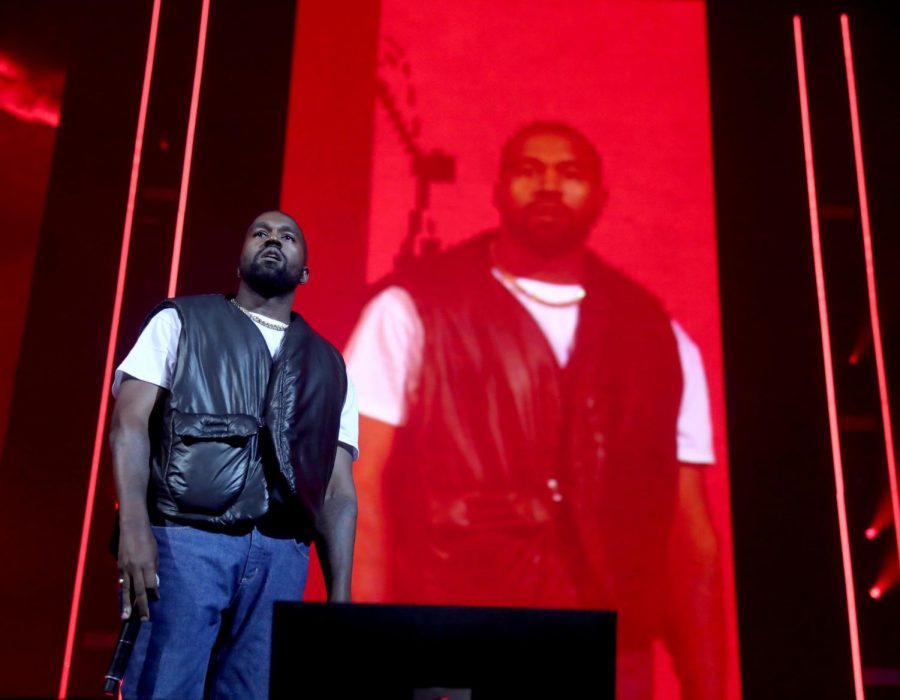‘JESUS IS KING’ falls short of collective potential
Copy Editor Cecilia Mitchell reviews Kanye West’s latest project “JESUS IS KING.” She writes, “‘JESUS IS KING’ falls short in comparison to his previous work due to the lack of assertive lyrical genius and innovative composition.
Oct 31, 2019
On Friday, Oct. 25, Kanye West released his ninth studio album, “JESUS IS KING.” While the release features memorable musical moments throughout, the album falls short in its unfocused message and delivery.
West is no stranger to controversy. His infamous outbursts have switched gears in recent years from his anti-Bush sentiments of past to his pro-Trump stance of today, not to mention his countless other dramatic moments, like when he stole the spotlight from a young Taylor Swift or had numerous rifts with models in his Yeezy fashion shows. In light of his Trump endorsement, a move that drove away many Yeezy fans yet attracted others, West’s public persona and musical identity have also evolved. While West has always presented himself as religious, Christianity has now become a central component of his image. This year, West’s gospel-rap group Sunday Service, featured on “JESUS IS KING,” has performed every Sunday since January in a church-like fashion.
Religious references have been scattered throughout West’s entire discography, sometimes in a sacrilegious form like those in 2013’s egotistical Yeezus album. Don’t get me wrong, Yeezus is one of my favorite Kanye releases, but one can’t deny that the lyrics of “I Am A God” and “I’m In It” aren’t exactly properly “Christian.” In contrast, “JESUS IS KING” takes the form of a gospel album; worshipping God is the focus and for the most part, the meaning behind this release. In this album, West once again samples the eighteenth-century hymn “Father I Stretch My Hands to Thee,” as he did on 2016’s The Life of Pablo.
While religious allusions in contemporary music usually tickles my fancy, especially in genres like hip-hop and rap; the lack of sincerity in this 27-minute, surprisingly cookie-cutter gospel rap album makes the listening experience a chore rather a delight.
What made Kanye enjoyable in the past was his invention and production. This short record does have high production value but contains highly repetitive lyrics (on-brand with the gospel style, but disappointing for the lyrical, confrontational output that usually makes for Ye’s best music) and preaches its message in the wrong way. West’s new proselytizing persona would land better if his new, clean sound was innovative. There are scattered, quick gems of lyricism and musicianship within this album, but its overall delivery lacks the pointed, somewhat manic lyrical urgency that once made Kanye one of the greats.
In other words, this album, at first glance, seems interesting. Yet, upon listening, one finds that it’s pretty boring, lacking the punch, thought-provocation and re-listenability of West’s previous work.
The best musical moments on “JESUS IS KING” are actually the ones that harken to West’s older work. For example, “Follow God,” arguably the best track on the album, has an agressive flow reminiscent of Yeezus. The loose composition of “Water,” while not as strong of a piece, reminds one of the collaborations West had with Paul McCartney earlier this decade. “Selah,” disregarding the long-winded Hallelujah chorus at the end, features a great flow and drum beat that reminds one of the earlier Kanye we know and love. However, “JESUS IS KING” falls short in comparison to his previous work due to the lack of assertive lyrical genius and innovative composition. Nine records in, the public does have high expectations for new ‘Ye releases and this album does not satisfy. At best, plenty of the individual tracks are playlist-worthy, but I won’t be spinning this album front-to-back again anytime soon.








